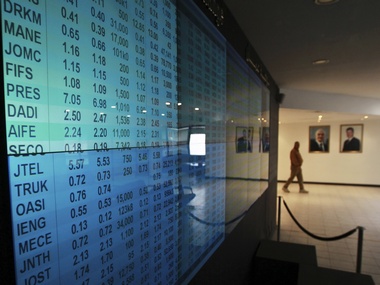New Delhi: Industry body CII has sought rationalisation of the dividend distribution tax rate to 10 percent in the upcoming Budget to encourage participation of different stakeholders in the country’s financial markets. Alternatively, to negate the multiple level taxation issues pertaining to dividend distributed, the dividend paying company should pay tax on its profits, including distributed profits at corporate rates, the chamber said in the detailed representation submitted to the government for consideration. [caption id=“attachment_4303875” align=“alignleft” width=“380”] Representational image. Reuters[/caption] Dividend should be taxed at the hands of the non-corporate (leveraged) shareholders as normal income, and expenses should be allowed against such dividend in full. “Conducive taxation framework is a vital cog in the wheels of the financial markets and has the potential to make or break the market,” CII Director General Chandrajit Banerjee said. Considering that the financial markets are the major provider of risk capital and debt capital, it is important to have conducive tax policies for enabling participation of all stakeholders in the markets, he added. On the with-holding tax provisions for foreign portfolio investors (FPI), CII has recommended that the reduced tax should be made perpetual and not expire after June 2020. Currently, with-holding tax deduction at source on interest payments to FPIs stands at 5 percent on investments in rupee denominated domestic corporate bonds. This rate was reduced from 20 percent to 5 percent and is made available till June 2020. “FPIs interest in participation in Indian economy is increasing due to the sound economic growth of the country and the bare minimum incentive they want is tax certainty in the long term,” CII said, adding that it may be worthwhile to grant exemption from with-holding tax to FPIs to incentivise their participation in municipal bonds, arguing that this may help in bringing long term money from pension funds. The industry body has also demanded that the holding period for units of debt mutual fund must be restored to 12 months from 36 months to qualify as long-term capital gains and bring it at par with equity market. CII has also sought exemption of the borrowing charges paid to National Securities Clearing Corporation Ltd by the borrower on securities borrowed under the Securities and Lending Borrowing scheme from provisions of tax deducted at source.
Industry body CII has sought rationalisation of the dividend distribution tax rate to 10 percent in the upcoming Budget to encourage participation of different stakeholders in the country’s financial markets
Advertisement
End of Article


)

)
)
)
)
)
)
)
)



